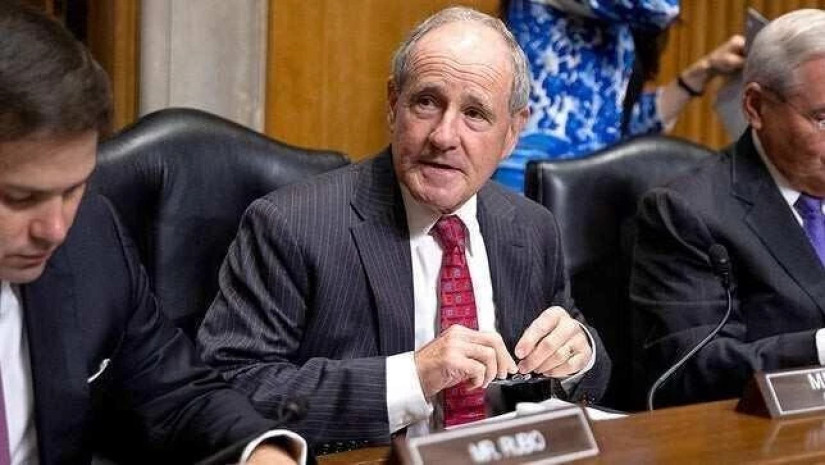U.S. Senators Jim Risch (R-Idaho), chairman of the Senate Foreign Relations Committee, and Jeanne Shaheen (D-N.H.), ranking member of the Subcommittee on Europe and Regional Security Cooperation, today sent a letter to Prime Minister Giorgi Gakharia of Georgia expressing concern over recent events that indicate a backsliding from Georgia’s commitment to build the institutions of their democracy.
“We are increasingly concerned by recent events that indicate a weakening of Georgian democracy and governance,” said the senators. “Two of the most pressing matters are Parliament’s failure to uphold its commitment to electoral reform and the government’s violent suppression of peaceful protests. We understand that the promised electoral reform was expected to give proportional representation to Georgian voters to ensure the system did not unduly favor any one political party. Your government’s decision to prevent that change indicates a backsliding from commitments to build the institutions of Georgia’s democracy.”
“An independent, democratic Georgia has many international supporters, and we are eager to continue to assist your country,” they continued. “However, we are motivated to support Georgia’s economic and political development only as long as we can rely on Georgia to be a stable, trustworthy, and democratic partner in this effort. We sincerely hope that you will work quickly to reverse this decline and fulfill the promises made to the Georgian people.”
Full text of the letter can be found here:
Dear Prime Minister Gakharia,
We write to express our deep concern with recent developments in Georgia. In the 29 years since Georgia’s independence from the Soviet Union, we have watched democracy take root, the economy grow, civil society flourish, and governance improve dramatically. Georgia’s commitment to a peaceful transition of power and consensus-based politics has been an impressive example in your region. We both observed the 2012 parliamentary elections and were impressed with how Georgia had embraced these core tenets of democracy. For decades now, the United States has been eager to support Georgia as it developed.
However, we are increasingly concerned by recent events that indicate a weakening of Georgian democracy and governance. Two of the most pressing matters are Parliament’s failure to uphold its commitment to electoral reform and the government’s violent suppression of peaceful protests. We understand that the promised electoral reform was expected to give proportional representation to Georgian voters to ensure the system did not unduly favor any one political party. Your government’s decision to prevent that change indicates a backsliding from commitments to build the institutions of Georgia’s democracy. Furthermore, the massive yet peaceful protests that followed are a visible sign that there is dissatisfaction with this failure. The government’s violent suppression of these protests is a violation of Georgians’ democratic rights and of the government’s duty to protect its citizens.
In addition, the recent political targeting of opposition leaders through both formal and informal methods is further evidence of Georgia’s democratic backsliding. Reports that opposition leaders have been physically assaulted or harassed by individuals linked to the ruling party are disconcerting. So too is the reopening of criminal cases against opposition figures that have been closed for years. Politicians must be permitted to exercise their right to speak freely, and Georgia’s judicial system should not be used as a tool to limit this freedom.
Finally, we are particularly concerned that the independence of Georgia’s judicial system is being undermined by the appointment of 14 new Supreme Court justices for lifetime tenures before their qualifications were fully evaluated, as noted in the January 2020 Organization for Security and Co-operation in Europe monitoring report. Installing political allies into the highest court, instead of impartial judges with robust credentials, undermines the very democratic institutions that have made Georgia the envy of the region. Mr. Ivanishvili’s recent statement that many more protestors will have to go to prison is a further troubling development. We hope it is not an indication that the Georgian government is willing to misuse the courts and police for political gain.
We have been strong advocates of the U.S. partnership with Georgia for years and still believe you have a strong democratic foundation. However, these events give us pause and raise questions about Georgia’s commitment to our shared values. Further, we fear that a lack of progress on reforms and increased tensions within Georgia will only open the door for increased Russian meddling in the country and throughout the region. The longer these actions continue, the more Georgia’s security will be jeopardized, and we may be forced to reevaluate our partnership.
An independent, democratic Georgia has many international supporters, and we are eager to continue to assist your country. However, we are motivated to support Georgia’s economic and political development only as long as we can rely on Georgia to be a stable, trustworthy, and democratic partner in this effort. We sincerely hope that you will work quickly to reverse this decline and fulfill the promises made to the Georgian people.











